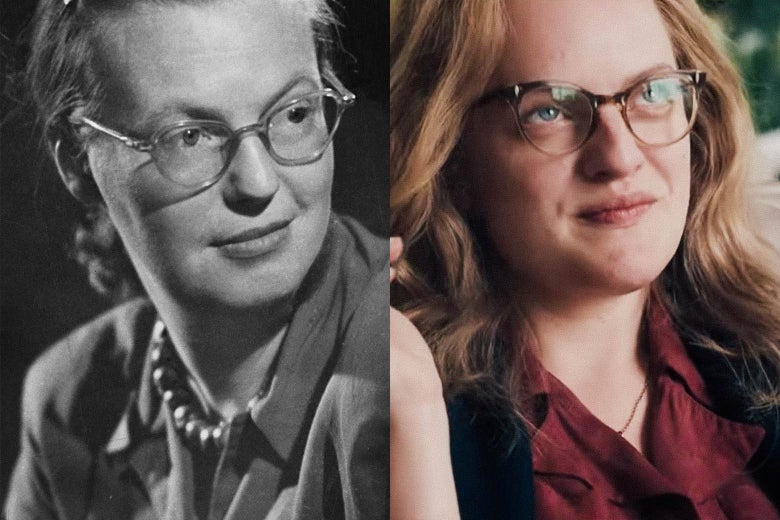I had never heard of American writer Shirley Jackson, but the precis blurb was tantalising: Tense biopic in which famous horror writer finds inspiration for her next book when she and her husband take in an innocent and admiring young couple.
‘Tense’, ‘horror’ and ‘biopic’. Right up my alley!
So we went. Me and two girl chums. At the end I issued a pre-emptive apology: ‘that’s two hours of our lives we’ll never get back.’ (I thought I’d get that in first so we could get straight on to the business of working out why we didn’t like it.)
The screenplay is based on a novel that imagines a few months in the life of Shirley Jackson and her husband, academic and literary critic Stanley Hyman. They live in a ramshackle gothic mansion in Vermont, New England, where he teaches at Bennington College. So far so true to life.
When we first meet them they’re having a drinkies party and she’s on the couch surrounded by groupies keen to check out this new literary celebrity who’s been lifted from the ranks of pulp fiction hacks by having a short story, The Lottery, published in The New Yorker. [You can read it online – it’s sinister and disturbing.]

One of the crowd of acolytes is Rose, a young pregnant woman who’s just arrived with her husband Fred, an aspiring writer who’s going to be Hyman’s live-in assistant. Rose is looking forward to inhabiting this intellectually stimulating milieu with him, but it soon emerges that her job will be to do all the menial housework and fetch and carry for Shirley, a troubled and slovenly woman who drinks and smokes heavily and sometimes doesn’t want to get out of bed, and that far from presiding over a sparkling literary salon, Shirley and Stanley are a bit like the warring couple George and Martha in Who’s afraid of Virginia Woolf? except that they direct their cruelty outwards; he with a veneer of charm that channels his wife’s anxieties and resentments away from his own marital sins – he insists on being allowed to seduce his young female students – and towards their initially unsuspecting houseguests.
The Fred and Rose episode is invented, but the characters of Shirley and Stanley are supposedly rooted in reality. If all you learnt about these two was gleaned from this film, you would come away thinking they were a nasty pair of degenerates altogether.
But how true is it? The film doesn’t mention the fact that in real life they had four children, and that a lot of Shirley Jackson’s commercial success as a writer came from whimsical newspaper columns on the ups and downs of family life and child-raising. She wasn’t just the ‘Virginia Werewoolf’ that one critic has dubbed her characterisation in this movie.
In post-movie googling I was interested to know what the Hyman children thought of this version of their parents’ marriage. One son is quoted as complaining that his mother was portrayed as ‘an alcoholic harridan’, but I wouldn’t have been surprised to read of a defamation lawsuit.
Perhaps there’s enough truth in the story to forestall that, or perhaps the children consider that any publicity, however defamatory and unfair, is good for the financial future of their mother’s literary estate.
Shirley Jackson died in 1965 at the relatively young age of 49, not surprising considering her deeply unhealthy lifestyle. This and her parlous mental state no doubt had much to do with her unhappy and anxious childhood at the hands of an unloving and hypercritical mother, all of which you can read about online in great detail. Online reading also sheds light on why she had such a demon-haunted imagination, unlike this movie.
Shirley doesn’t purport to be a full-scale biopic, but I couldn’t help thinking it was unfair to make up a short story about her in which she comes across as unrelievedly cruel and witchy, without any reference to the sources of her psychological terrors, let alone to the fact that she successfully raised a family of four children and didn’t exclusively write horror.
Elizabeth Moss’s performance is good as far as it goes, even down to the uncanny physical resemblance she achieves to her subject. Can’t fault that aspect, but as to why we didn’t like it…

In a nutshell: I suppose they were trying to achieve a kind of gothic gloom, with dark interiors and gimmicky camera angles and muddy dialogue and fuzzy close-ups where you couldn’t always work out what was going on, but in the end it was all a bit unpleasant and pretentious.
